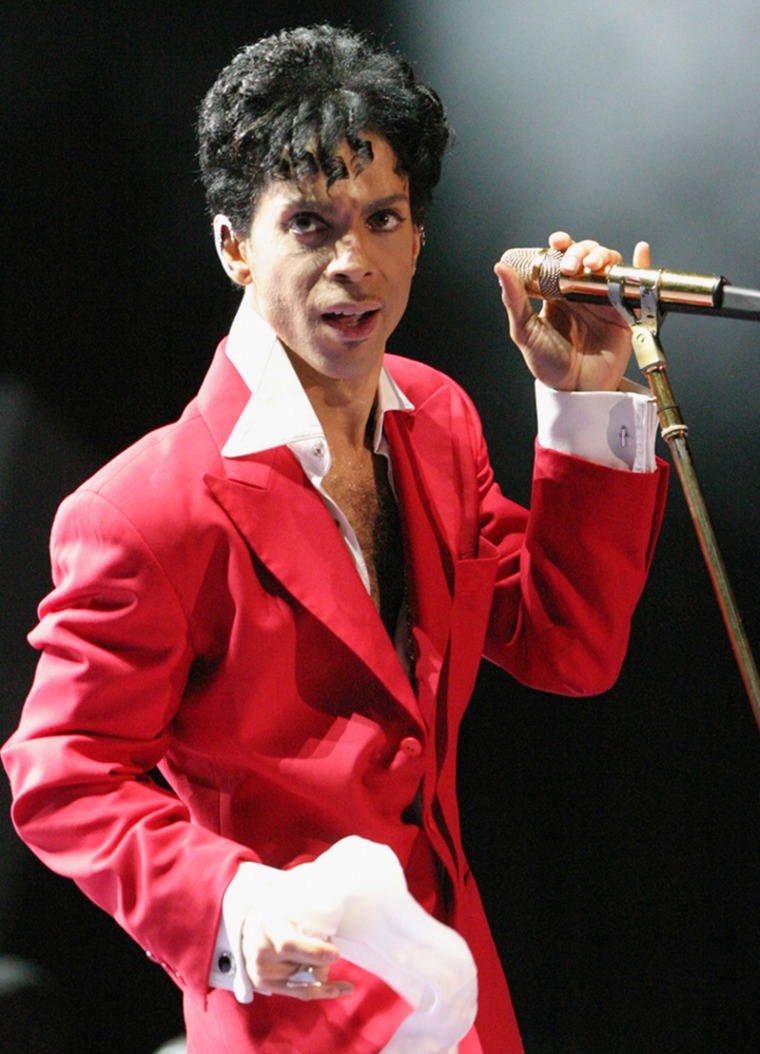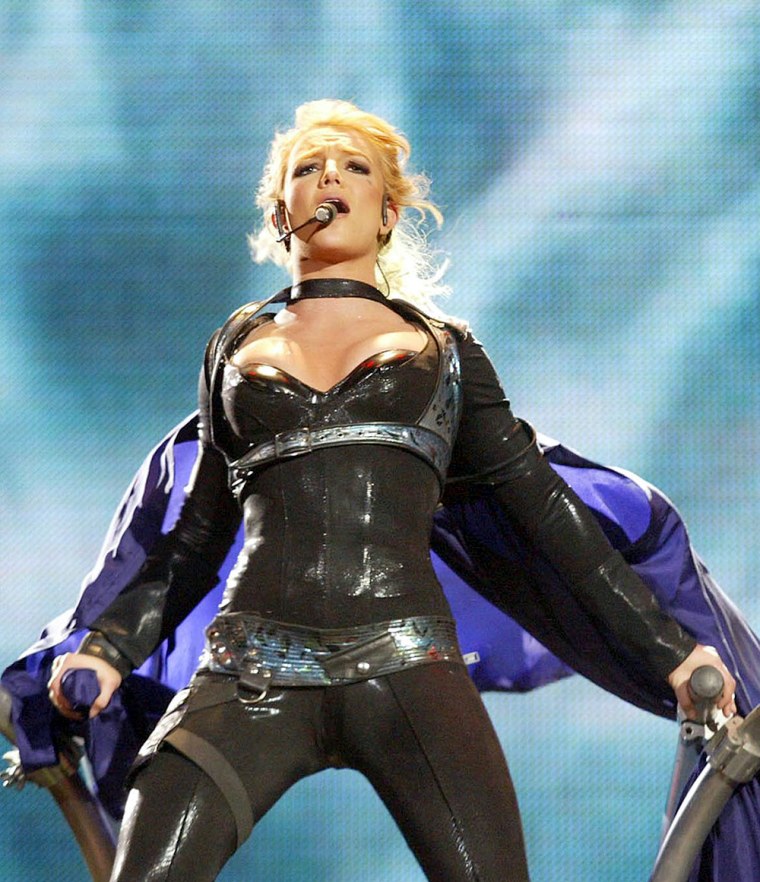July 12, 2004 — When Britney Spears blew out her left knee last month in rehearsal for her Onyx Hotel tour, it was an ironic metaphor for the summer's concert business: hobbled before summer even got under way.
Concert promoters are grappling with a so-far disappointing concert season, with ticket sales down despite rising consumer confidence and an economy that’s on the rebound.
It's stumped the professionals. “We can't really come up with reasons why business is off — and we're talking 20 to 50 percent,” said Gary Bongiovanni, editor-in-chief of Pollstar, which monitors the U.S. concert business. “It's got all of us scratching our heads.”
In short order, tours that had featured the cream of rock talent have been shuttered: The high-profile Lollapalooza national tour, announced in April and set to star PJ Harvey, Modest Mouse, Morrissey, Sonic Youth, the Flaming Lips and others, was called off last month for poor ticket sales.
The June 26 stop for the Rolling Rock Town Fair tour was moved from the higher-capacity King County Fairgrounds outside Seattle, to a smaller theater in the city — due to slow ticket sales, organizers said.
The national Blues on Tour revue, starring such blues legends as Ruth Brown, Pinetop Perkins, Little Milton, Bobby Rush, Ike Turner and Robert Jr. Lockwood, was also canceled for middling sales. And while there have been a host of official reasons for tour cancellations by Marc Anthony (work on an album), Jessica Simpson (kidney infection), Christina Aguilera (strained vocal cords), Missy Elliott (logistical problems and concerns about terrorism), concert industry insiders offer a translation: Nobody’s buying.
April, the cruelest month
“We started out having a strong year,” Bongiovanni said. “First-quarter revenues started out well — Prince and Rod Stewart had expensive tours but they did pretty good business.

“It was right around April when ticket sales started to slow down dramatically,” he said. “People started tightening their purchase of concert tickets right around April 15, and it's been that way since then.”
Phil Gallo, associate editor at Variety, the entertainment trade publication, concurs. "There's been a noticeable drop-off in concert tickets since mid-April,” he said. "People are uncertain about the economy in this country."
But that sentiment is not obvious from the economic numbers. The Conference Board’s consumer confidence index increased in June jumped to a 22-month high, indicating high consumer likelihood to spend money. And another poll of consumers found confidence and comfort on the rise.
Too few fresh faces, too many costs
To Gallo, part of the concert problem is generational. Perfomers who year-in and year-out sell huge blocks of tickets are the older attractions. “They're veteran acts; consequently they're getting veteran concertgoers,” but aren't drawing drawing younger concert-goers, he said.
“We haven't seen the rise of groups that evolved from club acts to midlevel to arena acts that you had years ago,” Gallo added.
Fixed expenses, such as the costs of renting major arenas, are another issue.
“Certain expenses will be the same whether you're selling five hundred seats or 5,000,” Gallo said. “When your big-ticket concert tours are playing in basketball arenas, you're doing a lot of shows at a higher ticket price.”
And Pollstar's midyear snapshot of average ticket prices year-over-year show those prices going up.
Other distractions
Gallo mentioned other distractions vying for the entertainment dollar, diversions that siphon money away from concert business. “Video games, movies and to some degree, baseball — where ticket purchases and attendance are way up this summer — are certainly pulling money from concert coffers,” he said.
Some acts are getting it right. Gallo found much to like about the strategy behind Prince's current greatest-hits tour: reasonably-priced tickets with the value-added feature of a free copy of Prince's new “Musicology” CD to every concertgoer. “He's got a rabid audience that hasn't seen him in that setting. For him, this has been a bonanza,” he said.
Lollapalooza’s problems
Other projects, like Lollapalooza, the independent rock tour started in 1991 by Jane's Addiction frontman Perry Farrell, may have been doubly cursed this year.
“The Lollapalooza show had a bill that largely appealed to older fans,” Bongiovanni said. “When you’re talking about a two-day long event, most of it on weekdays, I don’t think the lineup was such that your average 16- or 17-year-old — the people in the demographic they need — thought it was appealing. PJ Harvey fans would probably prefer to see her in a theater.”
A shift in musical tastes may be to blame. “The audience for true alternative rock just isn't that big anymore,” promoter Seth Hurwitz told The Washington Post recently. “Lollapalooza was big in the early '90s, when the scene was exploding, when you had bands like Pearl Jam and Nirvana, and it was something new and truly alternative. Now you turn on the TV and everyone is pierced.”
And Gallo observed that for Lollapalooza, and other indy-rock ventures, the need to secure a major sponsor to help hold down costs is inescapable. “If you don't go out and get a corporate sponsorship, you're kind of hosed,” he said.
Signs of hope, maybe
It's not all bad news; Bongiovanni said Madonna's current tour would be a bright spot; the Material Girl is expected to gross about $46 million for the first six months of year, he said.
Things may turn around for other acts, especially with such longtime draws as the Ozzfest 2004 tour kicking off its summer tour (Ozzfest began Saturday in Hartford, Conn.). “Ozzfest has the added benefit of Black Sabbath reuniting, so we'll see,” Bongiovanni said. “Some of those acts do pretty fair walkup business.”
And the 2004 edition of the Warped Tour just started, featuring a customarily huge bill of rotating artists (this year, among many others there's NOFX, Bad Religion, Anti-Flag, and Juliette & the Licks, starring actress-singer Juliette Lewis). Taking a page from Prince's playbook, tour producers have arranged for giveaways of a double-CD set with every pre-sold ticket.
To Bongiovanni, it's all proof of the guesswork seemingly built into the concert business, and how inventive it has to be these days.
“You never really know until you ask the public to pull out their wallets if it's going to be something the public wants,” he said. “You never know for sure. The concert business is as much art as it is science. Sometimes it's more art than science.”
